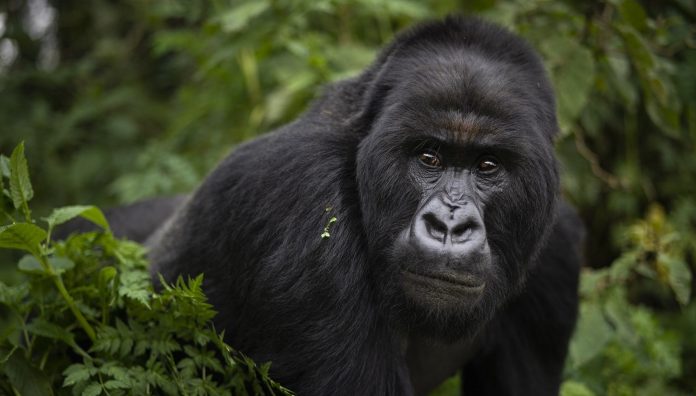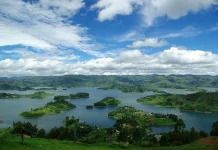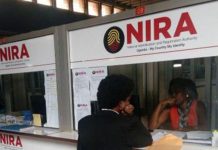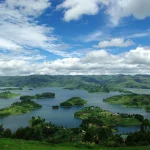In a bid to strengthen wildlife conservation and sustainable tourism, Uganda Wildlife Authority (UWA) is set to implement conservation tariffs review starting July 1st, 2024, so as to give time to tourists and stakeholders to adapt to the changes in pricing structure with a notable change in the cost of gorilla permits. This decision, communicated on January 17th, 2024, aims to support wildlife preservation and ensure sustainable tourism in Uganda.
The tariff adjustment results from careful consideration and consultations with various stakeholders, including tour operators, conservationists, tourist groups, and local communities. The goal is to ensure the long-term preservation of Uganda’s natural treasures.
Uganda Wildlife Authority is a government agency responsible for managing and protecting wildlife in Uganda. It oversees 10 National Parks, 12 Wildlife Reserves, 5 Community Wildlife Management Areas, and 13 Wildlife Sanctuaries, making Uganda a cherished destination for nature lovers and conservationists.
Reasons for conservation tariffs
Conservation Funding

The hike in gorilla permit costs is anticipated to generate additional revenue that will play a pivotal role in funding essential conservation initiatives. This includes supporting park management including the the site guides that lead in gorilla trekking and safeguarding endangered species, particularly the iconic mountain gorillas. The increased funds will empower UWA to take proactive measures in protecting these species and their habitats.
Sustainable Tourism
By adopting a fair pricing structure, UWA aims to attract responsible tourists who are genuinely committed to the preservation of wildlife and natural habitats. This approach fosters sustainable tourism practices, creating a harmonious balance between visitor experiences and environmental conservation. Tourists, in turn, become active contributors to the well-being of local communities and the ecosystems they explore.
Enhanced Visitor Experience
The additional funds generated through the adjusted tariffs will be strategically invested by UWA. This investment is earmarked for improving infrastructure, enhancing visitor facilities, and supporting comprehensive conservation efforts. Tourists can anticipate a more enriching experience in Uganda’s protected areas, as the resources will be channeled towards creating a conducive environment for both wildlife and visitors.
Implementation of Comprehensive Changes
The decision to review conservation tariffs and increase gorilla permit costs is grounded in UWA’s unwavering commitment to wildlife conservation and sustainable tourism. This initiative, supported by thorough research and stakeholder consultations, ensures the continued protection of Uganda’s diverse ecosystems and unique wildlife.
Funding Conservation Initiatives
The additional revenue generated from increased permit fees will directly contribute to funding conservation initiatives. This includes anti-poaching efforts, habitat restoration, and community-based conservation projects, all of which are integral to maintaining the ecological balance.

Transparency and Accountability
UWA’s commitment to transparency is evident in the comprehensive research conducted and the rigorous approval process by the UWA Board of Trustees. This ensures that the funds collected are allocated judiciously, addressing the specific needs of each protected area.
Long-Term Sustainability
The decision to review tariffs is not a short-term fix but a strategic move towards long-term sustainability. The revised tariffs are set to remain in effect until June 30th, 2026, allowing for periodic evaluations and adjustments. This adaptive approach ensures that conservation efforts stay adequately funded, responsive to evolving challenges, and capable of securing Uganda’s natural heritage for future generations.
Reassurance for Tourists and Stakeholders
For any trips slated to commence on or after July 1st, 2024, tourists and stakeholders can anticipate a modest increase in the cost of gorilla permits and other activities. This adjustment is coupled with the reassurance that their contributions will play a crucial role in supporting the preservation of Uganda’s natural heritage. It signifies a shared responsibility, where tourists become active participants in the ongoing conservation narrative, leaving a positive impact on the ecosystems they explore. However those that booked before and they are to have their tracking dates in and after July will not have to pay extra money. And those that haven’t booked and they have their tracking dates in July will have to pay the new charges.
Revised Conservation Tariffs
Below are the activities with their old and new charges
Gorilla Trekking
East Africans – UGX 250000 UGX 300000
Rest of Africans $500
Foreign residents- $600 $700
Foreign tourists- $700 $800
Chimpanzee Tracking
Foreign Tourists- $200 USD 250
Foreign Residents- $ 150 $200
East Africans- UGx 150,000/- UGx 180,000/-
Chimpanzee Habituation
Foreign Tourists- $250 $300
Foreign Residents- $200 $ 250
East Africans- UGX 200,000/- UGx 250,000/-
Chimpanzee Tracking in Kyambura
Foreign Tourists-$ 50 $100
Foreign Residents-$ 40 $80
East Africans -UGx 30,000/- UGX 50,000/-
There are more other conservation tariffs that were put in place among these include the Batwa forest exploration, self game drive and guided game drive, hiking, spot fishing, lion tracking and long walks.
Updated UWA tariffs (2024-2026)

In conclusion, the Uganda Wildlife Authority’s decision to adjust conservation tariffs is a proactive step towards ensuring the sustainability of both wildlife and tourism. It reflects a balanced approach that not only addresses the immediate funding needs for conservation but also focuses on creating a lasting impact on Uganda’s unique ecosystems. By embracing responsible tourism practices and investing in the protection of endangered species, Uganda is poised to continue captivating the world with its natural wonders for years to come.












